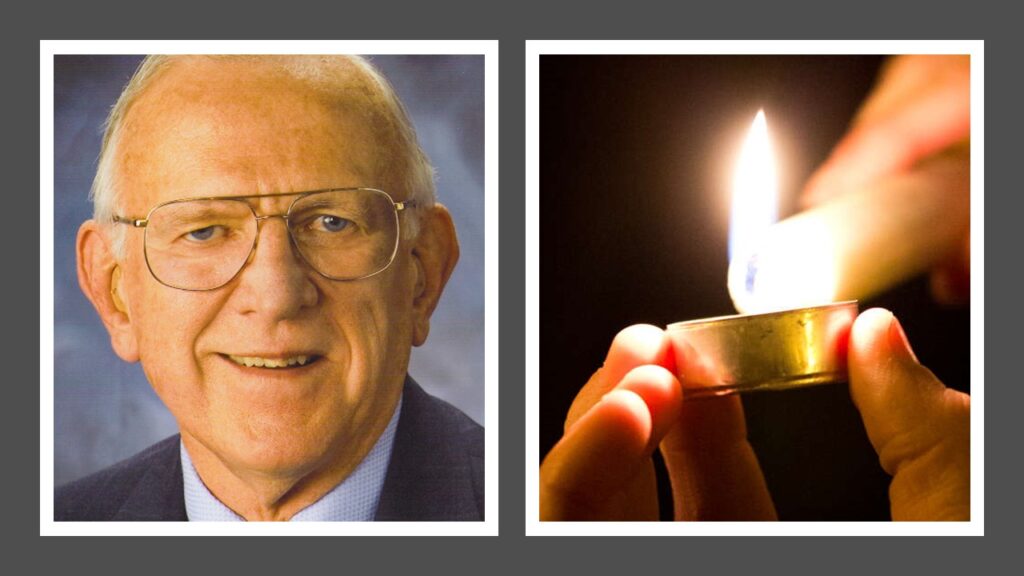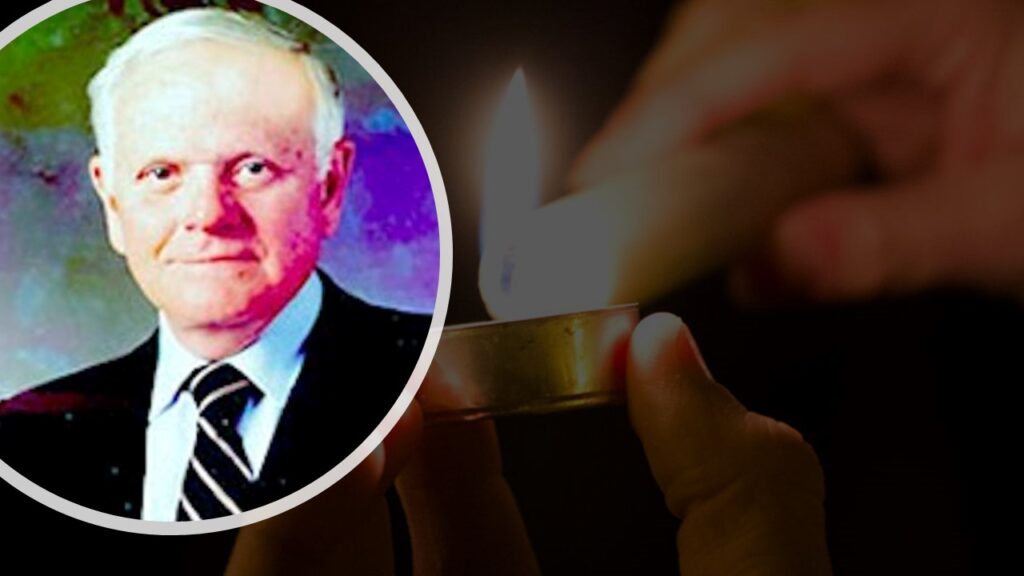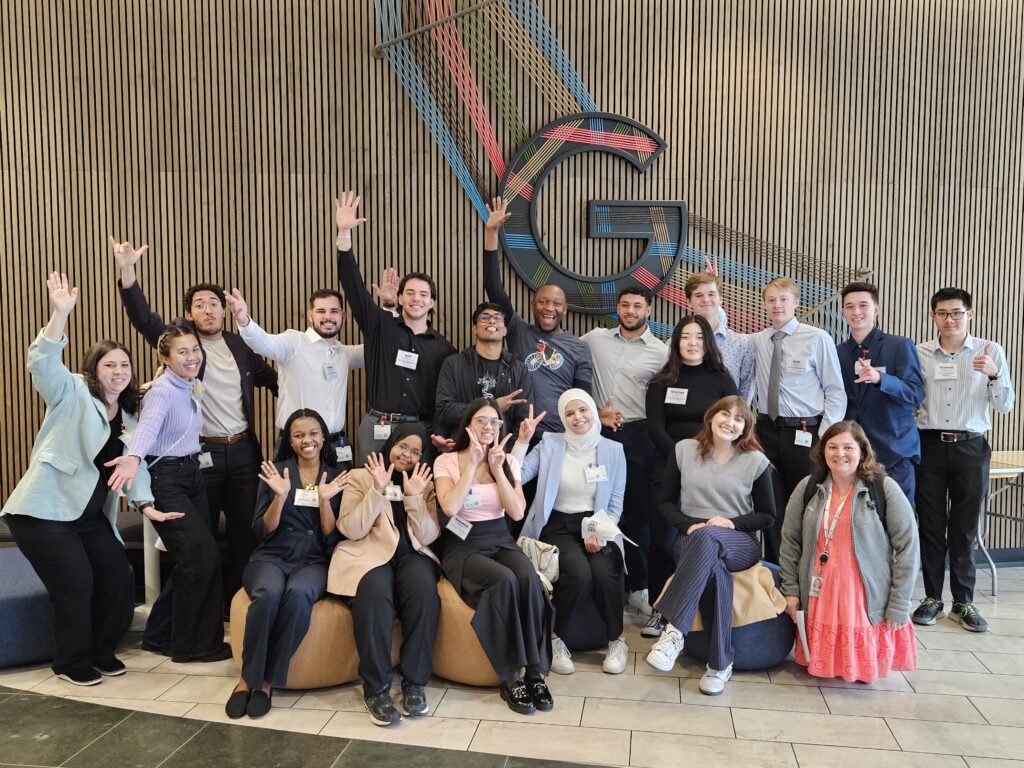Please remember in your prayers William C. Norris, a longtime friend of the University of St. Thomas and a nationally recognized technology leader, who died early Aug. 21.
Norris, who had suffered from Parkinson’s disease, died at Friendship Village Bloomington. He was 95.
A public visitation is scheduled from 4 to 8 p.m. Thursday at the O'Halloran & Murphy Funeral Home, 575 S. Snelling Ave.
A memorial service and reception are planned from 11:30 a.m. to 2 p.m. Friday in the auditorium and atrium of Schulze Hall on the university’s downtown Minneapolis campus. Among the speakers will be Michael Moore, director of the William C. Norris Institute, and Father Dennis Dease, president of St. Thomas.
A giant in the development of the nation’s computer industry, Norris was widely regarded as pioneer in the development and use of technology, the role of business in addressing social problems, and the importance of entrepreneurs in developing small businesses.
Norris was the founder and chairman emeritus of the famed Control Data Corp. and helped launch dozens of Minnesota companies. He founded Control Data in 1957 and retired as chairman and chief executive officer in 1986.
From 1988 through 2000 he chaired the nonprofit William C. Norris Institute, which supported efforts to improve education through the use of technology, to stimulate technical training in Russia, and to help launch technology-based small companies in disadvantaged neighborhoods of St. Paul and Minneapolis.
In 2001 the institute merged with St. Thomas’ College of Business and moved to the university’s downtown Minneapolis campus. The mission of the institute has been to support the commercialization of innovative, socially beneficial technologies by Minnesota entrepreneurs.
“William Norris knew Monsignor Terrence Murphy (the late president of St. Thomas) for many years,” explained Moore, director of the Norris Institute. Their friendship, and the College of Business’ programs in entrepreneurship, provided a good setting and permanent home for the institute, Moore said.
“The institute is one of Mr. Norris’ lasting legacies,” he added.
“Throughout my business career I have seen how innovation and creation of good new jobs begin at the entrepreneurial level, yet management and capital resources for start-ups are woefully inadequate. This relationship with St. Thomas will provide the full range of resources to help entrepreneurs start innovative companies in the various communities of our state,” Norris said in 2001.
Born July 14, 1911, with his twin sister Willa (who died last month) in Red Cloud, Neb., Norris grew up on his parents’ cattle, hog and corn farm, which his grandfather homesteaded in 1872. Bill, Willa and an older sister attended a one-room country school, where physics became his favorite subject. He was fascinated with the new field of electronics and built a mail-order radio set, becoming an avid ham radio operator. He graduated from the University of Nebraska in 1932 with a degree in electrical engineering.
His first job with Westinghouse Corp. was followed by five years of service in the U.S. Navy during World War II, where he became involved in electronic equipment that was the forerunner of today’s computers.
Norris became an entrepreneur after service in World War II, when he started Engineering Research Associates Inc. (ERA), in St. Paul. ERA pioneered the development of the digital computer and in 1951 merged with Sperry Rand Corp. Norris headed the Univac Division of Sperry Rand through mid-1957, when he and other engineers left to start Control Data.
Under his leadership, Control Data pioneered large-scale scientific and engineering computers, computer services, and the utilization of technology in education. Its PLATO computer-based education and training program was the world’s major pioneering effort in applying computer technology in education.Norris also pursued new business opportunities by working with the public and nonprofit sectors to address major social problems such as unemployment, blighted inner cities, and declining rural economies. Small-business incubators and Job Creation Networks supported by Control Data across the country led to more than 1,000 new companies and 13,000 jobs. And Control Data assisted its own employees to develop and spin off more than 80 technology-based new companies.
During his 29 years as CEO of Control Data, Norris led many collaborative initiatives involving government, universities, and business and industry. For example, in 1983 he conceived and initiated the Microelectronics and Computer Technology Corp., which is based in Austin, Texas, and currently has more than 60 members and associate members that collaborate on research and development among themselves and with government laboratories and universities.
Norris was instrumental in the drafting and passage of the National Cooperative Research Act of 1984 and the Technology Transfer Act of 1986, leading to the creation of the Small Business Innovative Research and Small Business Technology Transfer Research federal grant programs.In Minnesota, Norris helped organize and lead the Northwest Growth Fund, Minnesota Seed Capital Fund, Minnesota Cooperation Office, Minnesota Wellspring, and the Greater Minnesota Corporation (now Minnesota Technology Inc.), and with Control Data’s help he established the William C. Norris Institute. All of these initiatives supported entrepreneurship and sought to improve Minnesota’s economy by assisting small companies in creating jobs.
In 1986, Norris was awarded the National Medal of Technology by President Reagan, who cited him for “substantial contributions to the development of digital computer technology, leading to the founding of a successful computer and computer services company, and for his innovative application of computers to societal needs, as well as his initiation of cooperative efforts which promise to maintain U.S. competitiveness in microelectronics and computer technology.”
Norris also received the Institute of Electrical and Electronic Engineers’ Founders Medal and the National Business Incubation Association Founders Award. In 1995 he received the Lifetime Achievement Award of the Minnesota High Technology Council. In 2001 he received a lifetime achievement Tekne Award from the Minnesota High Technology Association and Minnesota Technology Inc. Most recently, in 2005, he received the Ellis Island Medal of Honor for outstanding contributions to the United States.
Norris is survived by his wife, Jane, and eight children.






